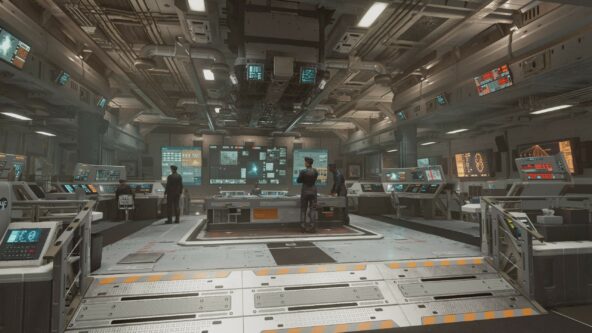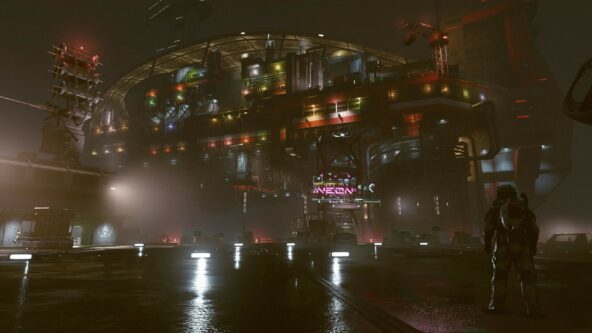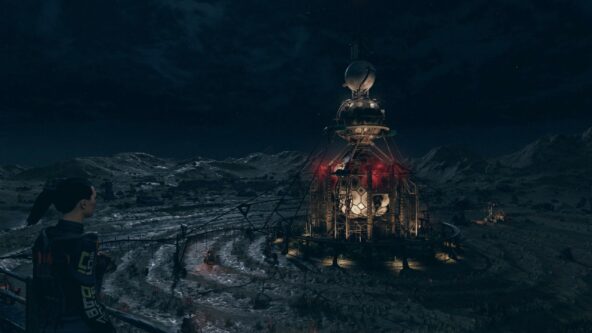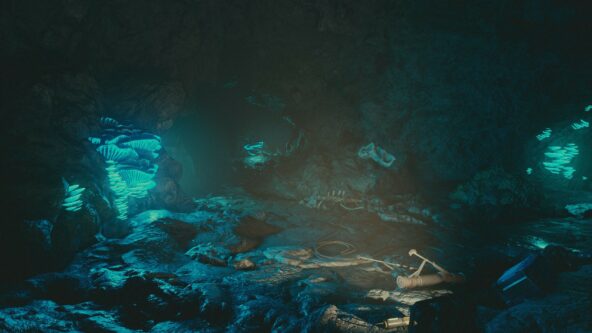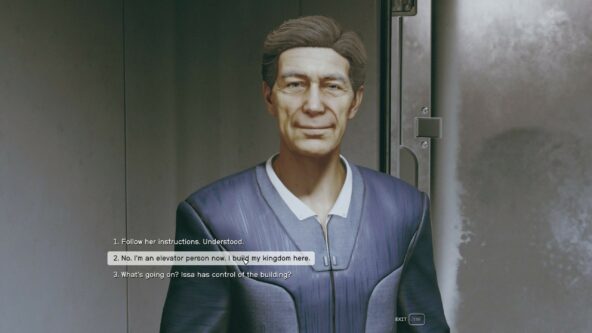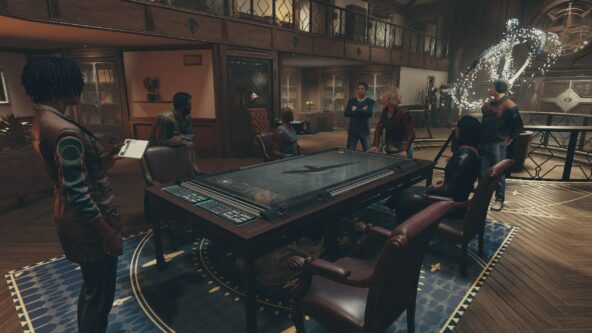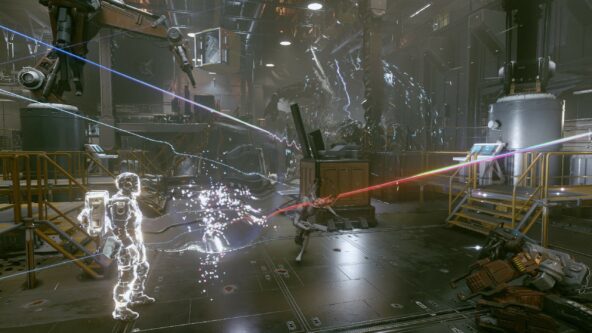Starfield
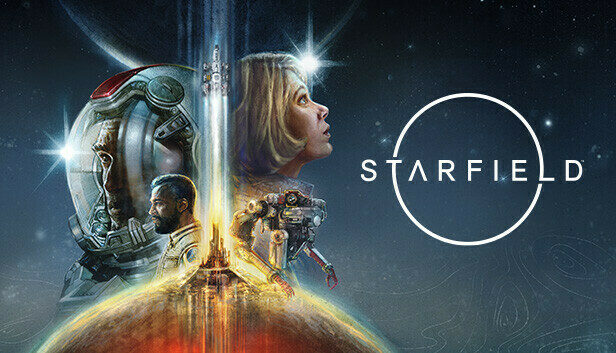
Starfield is mostly what I expected - a little more, a little less. Much as when Fallout 4 came out and I was happy with it because it was Fallout 3 but newer, I see Starfield as the same again. It's a Bethesda game in space, with the same engine they've been using since Skyrim in 2011. To borrow from my No Man's Sky review; with space games you can choose to hand-craft a small number of planets and make them memorable, or make the universe huge, procedurally generated and meaningless. Starfield is also the latter; of it's 1000+ planets, there are only a handful of memorable locations. I enjoyed the time I spent with it, but look forward to playing it again once modders have made it better.
Pros
- It feels exactly how I expected. It's Fallout, in space
- I like the FPS combat
- The models for people look great and the voice acting is really good
- Great character creator (which weirdly doesn't translate into looking great in the actual game)
- The environment scanner also highlights all the loot in a room
- There are research projects to unlock crafting recipes
- There's a whole system for building your own ship, buying new ones, editing parts etc
- Different planets have different gravity
- Zero-G combat
- Space ship combat is ok, but very clunky. It's mostly "biggest guns win", there's no dogfighting about it
- A new lock picking minigame that actually takes some thought (which I immediately modded out)
- It's awesome to build a ship and then climb into it
- Space powers are awesome
- I really like the main quest (although it feels like it's full of plot holes)
- Good variety of weapons, but too many kinds of ammo
- While I think the main story is pretty awesome, it is also completely unexplained. I hope the DLCs coming will actually explain who built the temples and artifacts, because it's a huge gap right now.
- The outpost builder has a top down birds eye view mode so you don't have to do everything in first person
- When crafting, your crafting benches have access to all storage containers at all of your outposts
Cons
- The weight limit is back and just as annoying as all their other games
- You can't manually fly between planets inside a solar system, or land manually. The whole game is a big series of loading screens
- I'd like to be able to press a number to answer dialog instead of clicking (added with a mod, again)
- The lip-sync on conversations is completely off
- Considering I just updated to a 4070 / 13700k, it doesn't run very well
- Running for miles across procedurally generated landscape to get to landmarks is really boring
- NPCs don't have schedules. I need to steal something from the governor's office, but he sits at his desk 24 hours a day
- Some of the scanner things are very counter-intuitive. When scanning resources, you can only target the rocks, not fields. However, fields show up on the scanner, but you can only harvest them once you put the scanner away. Rocks can be harvested with the scanner active
- No grid or angle snapping for item placement in outposts/ships, which means everything looks messy
- The ship builder is extremely limiting. Most modules can't be rotated, and you can only have one reactor, one shield generator. The builder UI is awful. The system in general is lacking for people who want to spend a lot of time in that part of the game. For example, you can't transfer parts between your ships, you can only buy some parts in unique locations, but as those parts can't be rotated, it's impossible to build a ship with all the good parts at the same time
- Stealth is broken. NPCs spot you from the other side of the base when crouched and not running (looks like this is heavily tied to how much you're carrying, but needs modding
- Rather disappointed that the skyboxes for planets you land on are not accurate for your location. So when you land on a planet, the celestial bodies in the sky are totally random.
- The local system's star colour doesn't affect anything on planets or skyboxes. All light is white/blue
- There is no way to re-spec, and skill points are WAY too far apart. Many basic skills are locked behind skill points. I ended up using Achievement Enabler and console commands to re-arrange my skills
- When you build outposts, you HAVE to use an airlock, even if the planet's atmosphere is breathable
- When you build stacked cargo containers at outposts, they don't share resources or have a shared storage pool - you have to manually link every bloody storage container to each other to move resources around
- Planets have unique traits... which do nothing other than "you have to scan them to get 100%". They could have done something cool
- The temple system feels lazy. Compared to say Fallout or Skyrim where you might have a really interesting vault or dungeon with some epic loot at the end, the 24 temples are simply "Land on a planet, walk to the temple and fly through 5 lights. Then you get a new power" Repeat 24 (up to 240) times.
Bugs
- If you go to a planet's orbit, the planet orbit your ship, not the local star
- The local star's colour has no effect on the planet light
- Local planets are bugged and regularly don't appear in the planet's skybox
- When you land on a planet's dark side, it's day time. When you land on the light side from the galaxy view, it's night time in your landing zone
New Game + spoilers
The mechanic they've chosen to use for NG+ makes sense within the law, but is very divisive. When you reach the end of the main quest, you can choose whether to start a new universe. If you do, you lose everything except your level, skill points and space powers. There are 24 powers in the game, 1 temple for each power in each universe, each power has 10 levels. Levelling all powers up is entirely unnecessary (because after about level 50, everything dies in one hit anyway), but naturally the fact that this system exists makes a subset of people want to do it. To max all powers, you have to play the game 10 times, and collect each of the 24 temples 10 times each.
There's also a set of armour you're given at the start of each universe, which changes appearance and gains power up to +10. If you want the cool looking armour, you have to play the main quest (the short version) 10 times.
If you're going to start a new universe, it basically makes settlement building and collecting anything other than credits and medkits pointless
When you start a new universe, where did my ship and armour come from? Did I just materialise in another universe? In what time period?

